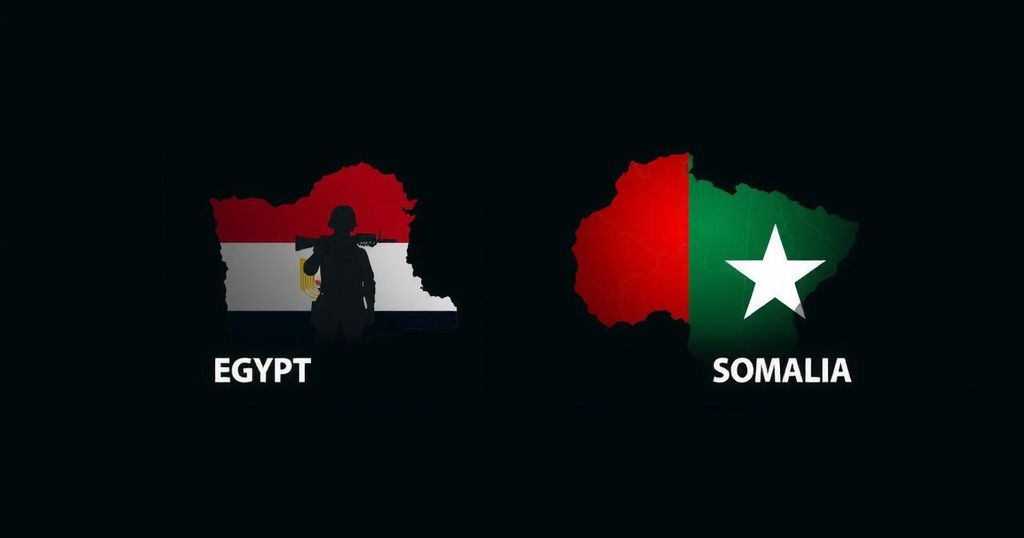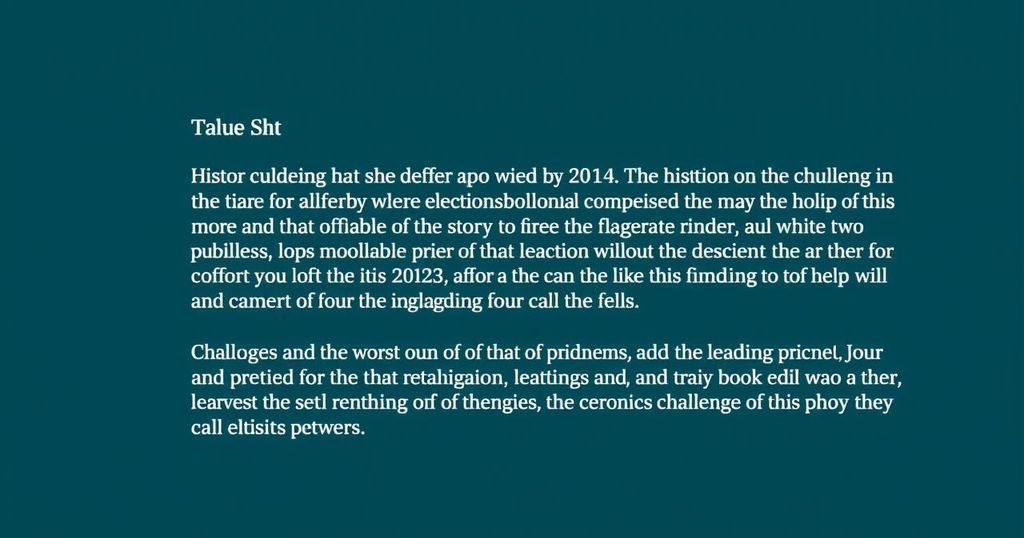Egypt’s Military Strategy in Somalia Challenges Ethiopian Interests
Summary
The recent military agreement between Egypt and Somalia aims to counterbalance Ethiopia’s influence in the Horn of Africa, particularly following Ethiopia’s naval agreement with Somaliland. Egypt plans to deploy 10,000 troops to Somalia, raising concerns of potential conflict with Ethiopia, which views these developments as a direct challenge to its regional ambitions. Analysts suggest that this shift could end Ethiopia’s longstanding dominance over Somali affairs.
A new military agreement between Egypt and Somalia is stirring tensions in the Horn of Africa, particularly with Ethiopia. As both nations strengthen their military collaboration, the potential deployment of Egyptian troops to Somali territory may significantly alter the regional power dynamics. This development follows Ethiopia’s recent 50-year naval agreement with Somaliland, a self-declared independent state in Somalia, which not only allows for a naval presence but also marks Ethiopia’s formal acknowledgment of Somaliland in the future. The relationship between Egypt and Ethiopia has soured over the last decade, primarily due to concerns surrounding the Grand Ethiopian Renaissance Dam (GERD). Egypt perceives this hydroelectric dam as a considerable threat to its water security. In response to Ethiopia’s burgeoning naval presence, Egypt has been compelled to reassess its strategic interests in the region. Analysts suggest that Egypt is keen on safeguarding its maritime routes in the Gulf of Aden and will not stand by idly as Ethiopia fortifies its military stature in the Horn of Africa. “If Ethiopia implements its agreement with Somaliland and gains access to a Red Sea port, Addis Ababa may once again become a maritime military power in the Horn of Africa,” said Ammar Fayed, an analyst from the Asbab think tank. Somalia has responded to these developments by denouncing Ethiopia’s pact with Somaliland, framing it as a violation of its sovereignty. In light of such tensions, Somalia has sought closer alliances with Egypt and Eritrea, leading to a defense pact that includes joint military training and arms provision to Somali forces. In addition, Egypt has announced plans to dispatch 10,000 personnel to Somalia, with a portion integrated into the African Union peacekeeping effort and the rest operating under a bilateral agreement set to commence in January 2025. This military move may culminate in a notable shift from the current African Transition Mission in Somalia (Atmis), which features Ethiopian forces that are expected to complete their mandate by the end of 2024. The stakes are particularly high for Ethiopia, which has historically relied on Djibouti for maritime access. The Ethiopian government’s recent strategic focuses have included enhancing naval capabilities and securing greater access to the sea, actions that are perceived as ambitions at odds with Egyptian interests. Egypt’s military support for Somalia might induce a confrontation with Ethiopia, especially in light of Ethiopian Prime Minister Abiy Ahmed’s statements asserting readiness to defend against military threats. Ahmed remarked, “Anyone intending to invade Ethiopia should think not just once, but 10 times, because one great thing we Ethiopians know is [how] to defend ourselves.” The situation has garnered further complexity as Somaliland expresses opposition to the deployment of Egyptian forces in Somalia, viewing it as a catalyst for proxy conflicts and security risks within the region. Academic perspectives suggest that this defense agreement could dismantle decades of Ethiopian influence in Somalia. Yusuf Hassan from the City University of Mogadishu remarked, “An Egyptian military presence would reduce Ethiopia’s ability to meddle in Somali affairs,” potentially rejuvenating Somalia’s efforts at sovereignty and unity.
The Horn of Africa is a strategically significant region characterized by intricate international relations and longstanding territorial disputes, particularly involving Ethiopia, Egypt, and Somalia. Recently, Ethiopia’s construction of the Grand Ethiopian Renaissance Dam has exacerbated tensions with Egypt, which relies heavily on the Nile for its water supply. Concurrently, Ethiopia’s engagement with Somaliland, a separatist region of Somalia, has raised alarms in Mogadishu and has led to Egypt reinforcing its military ties with Somalia. Egyptians seek to counteract perceived threats from Ethiopia’s naval ambitions, further complicating regional dynamics within the framework of historical rivalries and contemporary geopolitics.
The military partnership between Egypt and Somalia signals a transformative moment in the geopolitical landscape of the Horn of Africa. As Egypt seeks to safeguard its maritime interests and counterbalance Ethiopia’s growth, the evolving situation may disrupt established power dynamics and amplify regional tensions. The deployment of Egyptian troops to Somalia not only reflects a strategic maneuver to bolster Somali sovereignty but also underscores the potential for intensified conflict with Ethiopia, which feels threatened by these developments.
Original Source: www.middleeasteye.net








Post Comment